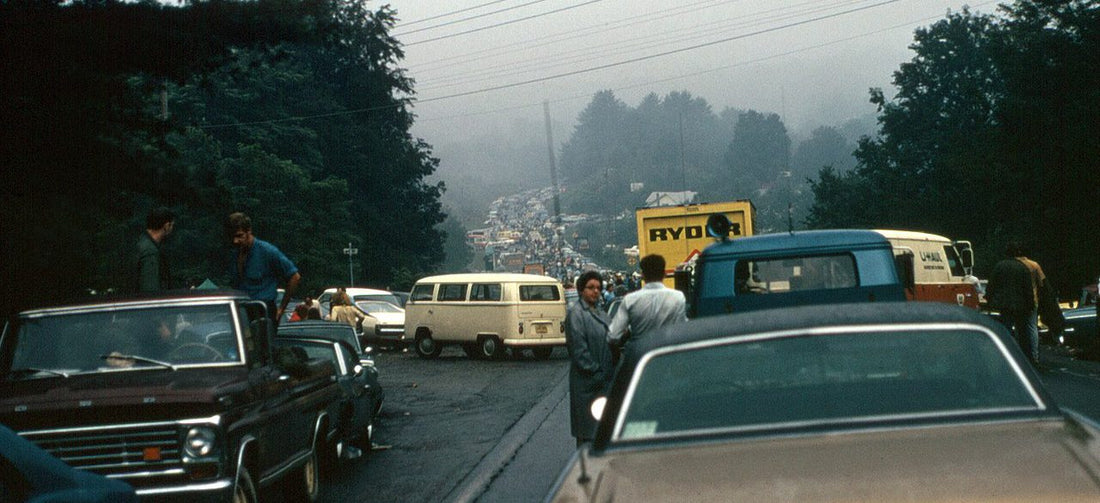When last we met, I put forth my guess as to one of two reasons Woodstock, despite being the largest music and art festival ever, was also the most peaceful. The first was the inspired choice for a security “force”. This is the second part.
The festival was originally slated for a flat piece of ground that was intended to become an industrial park. It was ideal for a smaller event, if a bit boring. Were the festival held there, it probably would have ended up like a number of events held at racetracks, like the Miami and Atlantic City Pop Festivals.
The land was leased; work was proceeding on construction and fencing. But fate intervened. Some local people didn’t like the thought of the rumored 50,000 attendees descending on their town. In early July, Wallkill passed a local ordinance requiring permits for any events with more than 5,000 in attendance. And then in mid-July the event was banned altogether over the use of portable toilets.
So — in reality, over 150,000 tickets had been sold to an event that now had nowhere to take place. I imagine the promoters were truly panicked. By the time an alternative site was found — the Yasgur dairy farm in Bethel, NY — there wasn’t enough time to do the preparation needed.
On the Monday preceding the start of the festival (which was coming right up, on Friday), a meeting was held and the construction foreman told the promoters the news: a choice had to be made between completing fencing the festival site in or completing the stage. There wasn’t enough manpower or material to do both. Reasoning that if they went with the stage, they’d be bankrupt, but if they went with the fencing they’d all go to jail, they chose completing the stage.
From such decisions a generation’s fate is decided. The festival was now free.
“That doesn’t mean that anything goes, what that means is that we’re going to put the music up here for free. What it means is that the people who are backing this thing, who put up the money for it are going to take a bath; a big bath. That’s no hype, that’s truth — they’re going to get hurt. But what it means is that these people have it in their heads that your welfare is a hell of a lot more important, and the music is, than a dollar.” – John Morris, from the stage.
Attended by nearly half-a-million well-meaning souls with good intentions, un-policed except by the Hog Farm (see Part I last ish), it was free to meander through music, mud, rain, skinny-dipping, traffic jams, food crises, acid trips both good and bad, broken bones and births (and two deaths), and a generally good time was had by most.
Incidentally, the food crises gave rise to another virtue of Woodstock. It wasn’t that the promoters were unprepared, it was the traffic jam resulted in people just abandoning their cars — and at a certain point the food couldn’t get in. In the end, the Hog Farm provided some and the people of Bethel provided what they could. As Wavy Gravy so famously put it, “We’re all feeding each other…”



